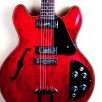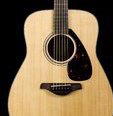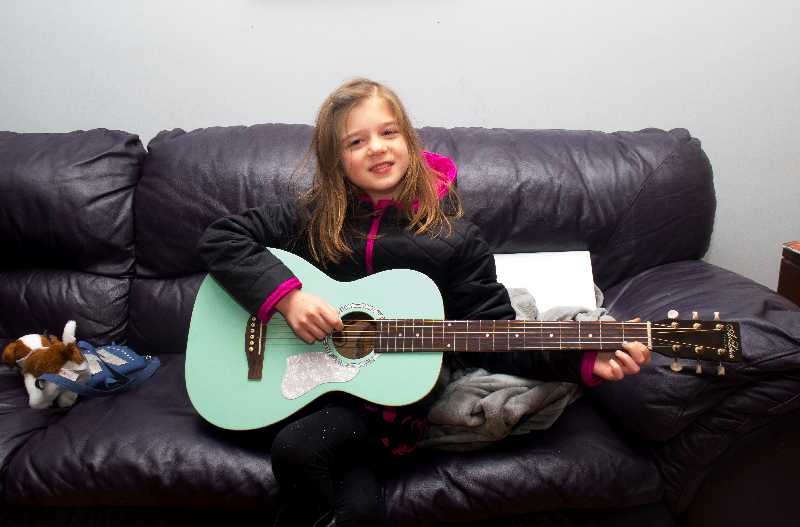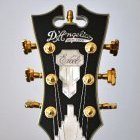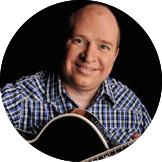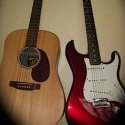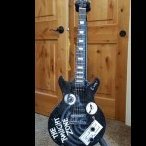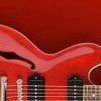Leaderboard
Popular Content
Showing content with the highest reputation on 01/20/2018 in all areas
-
Any of us that spent any time over at our old home know about the very amazing repair work on guitars that PatIam is capable of. It was well documented over there. I was talking with Pat about the annual toy drive here to provide toys for underprivileged kids on the Pine Ridge Indian Reservation. Pat very generously donated three of his guitars to go along with us to the reservation to give to kids wanting to learn to play guitar. There are some very happy kids on the reservation learning guitar as I type this and I am going to have a full post about that soon. The conversation turned to my granddaughter wanting to learn guitar. Pat said "I have just the perfect guitar for her". In fact, Pat gave me the choice of two different parlor size guitars and a very, very attractive price on it. Pat couldn't have begun to cover his time but I know, for Pat, it's not about making money. And Pat shipped it to my son's house so I didn't even need to worry about taking it on the plane to Chicago! My granddaughter's birthday is after the first of the year so at that time we went to Chicago and had a late Christmas and birthday celebration. There was one very surprised, happy 10 year old girl. And after that Papa had the great time of taking her to her second guitar lesson. And I had arranged for her lesson with a guy I had taken some lessons from on trips to Chicago. And the real treat was spending some time with my granddaughter helping her practice. My son and I and granddaughter got in the car to go to that lesson and my granddaaughter said to my son, "Daddy drive carefully! I have my new guitar back here"!!!11 points
-
4 points
-
RK, I do have that book. I can't review it because I have started it many times and then set it aside. I did think that it looked promising but just got distracted. How about I start it again, like you working it 10 minutes a day, and then you and routinely compare notes?2 points
-
The explanation end of it to help you understand why you will encounter these types of chords is it's an Ab major chord in first inversion. An Ab chord is made up of the notes AbCEb. Initially the chords we learn such as C, G, D, A, etc have the root of the chord as the lowest sounding note. When a chord is in its first inversion, it means the 3rd of the chord (the C in your example) is now the lowest sounding note. So it is written as Ab/C An Ab chord in second inversion would be written as Ab/Eb meaning the Eb is the lowest sounding note. And if we are dealing with an Ab7 chord, there are a few times when you might see the chord in its third inversion which would have the 7th as the lowest sounding note...ie Ab/Gb. It's very weak to use the 7th as the lowest sounding note, but you might still encounter chords in their third inversion once in a while. The reason why we use chords in first, second, and third inversions is to create a smooth sounding bass line in the music. If we didn't, when jumping around between chords such as C-G-C, the bass can sound choppy. If we use the G chord in its first inversion, the bass line would sound as C-B-C (written as C G/B C).2 points
-
An Easy System To Memorize Every Major Scale For each major scale, memorize the altered notes (sharps or flats) only if they constitute the minority, otherwise memorize the naturals. For example, in the case of B major you would memorize that B and E are natural and that the rest are sharp. Next, simply recite the musical alphabet starting with B and make every note “sharp” except for B and E: B – C# -D# – E – F# – G# – A# Memorizing just B and E for the above, is much easier than having to memorize C#, D#, F# , G# and A#! Here is a list of the 12 major scales as they appear on the descending (counterclockwise) CIRCLE OF FIFTHS starting with C MAJOR and what to memorize: C MAJOR: All natural — C D E F G A B Major Scales With Flats: F MAJOR: memorize Bb, the rest are natural — F G A Bb C D E Bb MAJOR: memorize Bb and Eb, the rest are natural — Bb C D Eb F G A Eb MAJOR: memorize Eb, Ab and Bb, the rest are natural — Eb F G Ab Bb C D Ab MAJOR: memorize C, F and G, the rest are flat — Ab Bb C Db Eb F G Db MAJOR: memorize F and C, the rest are flat — Db Eb F Gb Ab Bb C Gb MAJOR: memorize F, the rest are flat — Gb Ab Bb Cb Db Eb F Major Scales With Sharps: B MAJOR: memorize B and E, the rest are sharp — B C# D# E F# G# A# E MAJOR: memorize E, A and B, the rest are sharp — E F# G# A B C# D# A MAJOR: memorize C#, F#, and G#, the rest are natural — A B C# D E F# G# D MAJOR: memorize F# and C#, the rest are natural — D E F# G A B C# G MAJOR: memorize F#, the rest are natural — G A B C D E F# For the enharmonic scales (C# or Db, F# or Gb and B or Cb) at the bottom of the Circle of Fifths, memorize: C# MAJOR: all are sharp — C# D# E# F# G# A# B# F# MAJOR: memorize B, the rest are sharp — F# G# A# B C# D# E# Cb MAJOR: all are flat - Cb Db Eb Fb Gb Ab Bb1 point
-
Hi everyone! It's great to have the guitar family back together! My guitar dream is to be a part of the worship band at church and I wanted to ask those of you who have done this for all your best advice. Basically what I want to know is - how good do you need to be? What skills do you need to have down pat, what skills are more important, and what should I be practicing? I've been playing for a couple of years now and I have been taking lessons every week for about a year and a half. I recently bought some books with play along tracks to worship songs and have been working hard on those, but I know they are no substitute for playing live with others. (I don't have any experience playing with others, and I don't know anyone else here who plays.) I have talked with one of the guitarists about meeting to play together but he's very busy and we've not been able to coordinate it yet. I want to prepare myself as much as I can to serve in this way, if I were blessed with that opportunity... so I'd like to hear from experienced church players on the board. What do you wish new players in your group knew? What skills do you need the most? How do you keep from overplaying and keep it all "just right"? Steve mentioned the ability to listen to other players and play something that compliments them - I'd definitely like to hear more about that. Thanks for any thoughts you could provide - I have nothing to go on but lots of desire and practice time, hopefully I will get there one day.1 point
-
In an effort to break out of my music theory procrastination I have acquired the book Music Theory by Tom Kolb. I'm going to work with it at least 10 minutes of my practice time per day. Any reviews out there of this book?1 point
-
In my vast array of music theory books Tom Kolb’s “MUSIC THEORY Everything You Ever Wanted to Know But Were Afraid to Ask” has its place. Tom’s main approach is based on brief conceptual descriptions and formulas. It covers a lot of information, but you may find it kind of dry. I use it mainly as an additional reference. If you want to get a relatively quick grasp of basic music theory and understand the big picture, I would recommend “The Everything Music Theory Book” by Marc Schonbrun. Marc’s easy and engaging language makes reading the book and learning theory enjoyable. It actually has a companion book by the same author: “The Everything Reading Music Book.” There is some overlap between the books, but they complement each other perfectly. Then, you will be able to tackle more advanced music theory books. Steve usually recommends: “Edly’s Music Theory for Practical People.” It’s very good as well. I hope this helps.1 point
-
I often find that the /note is a hard reach for my pinky finger so I usually give up on the bass note. one of the main songs I play every week has a Am/G.. I can't grab the G without muting something.. so I usually let the G side. you may find that with some of the inverted chords (You can't always get the low note anways)1 point
-
1 point
-
1 point
-
1 point
-
Oh my gosh! You jogged my memory! When I initially read the first post, I completely forgot about Capo's Rule of Seven (Capo was an active member of LMG many years ago). I found the PDF on Mike's site which I uploaded almost 9 years ago! Major brain freeze here because I totally forgot about it! It really helps with learning the key signatures but should also help people construct scales once they learn the keys with up to 3 sharps and 3 flats. The rest is very easy. Capo's Rule of Seven.pdf1 point
-
1 point
-
@Cindy Cindy, thanks for the clear explanation on the inversions. That part was new to me. Every day is a learning day :-) Wim.1 point
-
Great job Ian! Excellent recording, that guitar has a great bass. ?? Mark1 point
-
Learn from Berklee Prof. Tomo Fujita, who taught the man.1 point
-
There is also another pattern that can help with the memorization of scales: If you look at G for example, the sharp is F. But looking at Gb, the F is the only note not flatted, so it is the opposite. Same is true for all of the other sharp vs flat scales (except the C# and Cb). For F, the B is flat, but F# the B is the only one not sharp.... etc. So if you memorize one, the opposite is easy to remember too Once you see the pattern it is hard to 'not' see it!1 point
-
Nice job Ian, I really liked that one. Your guitar playing and vocals were fantastic. You've really stepped up your playing / singing and your goals. Thanks. Looking forward to hearing whats next!! Watson43, That was great, I enjoyed listening. You've got a great set of pipes to go with your recording. Thanks. Glad you took the leap and posted. Looking forward to hearing more from you. Thanks.1 point
-
Nice recording Doug. Some very nice strumming. And especially cool you could do that in your car. I am doubly impressed!1 point
-
ok.. here is a quick recording in my car at lunch.. battery amp on the foot-well floor, a $50 Academy Strat clone and a phone recording it all from on top of the dash. this is the bridge of Pretty Woman in all barre chords. I hate fingering Dm in open.. I jump to Dm 5th fret over open chords jammed in the front seat of the car.. (embarrassment time... ) Pretty woman barre chord bridge jan19-2018.mp31 point
-
Regarding the 6th string on 5th string barre chords, you can touch it to mute it as previously stated. You can also go ahead and extend the barre to the 6th string and play it if you want. Remember, the 6th string notes are the same as the first string notes, just two octaves lower. If you extend the barre to the 6th string and play it, you're just playing the fifth of the chord as the bass note. For example, say you're playing a 5th string barre C chord. Your barre is at the third fret, so if you extend the barre to the 6th string, you're adding a low G, the chord's fifth, as the bass note. That could be useful if you want to play an alternating bass between the 1st and 5th, or there may be other times it could come in handy if you want that lower bass note or just a slightly fuller sounding chord. I don't recommend it at this stage as barre chords are hard enough to learn, but file it away for future reference.1 point
-
Here is a link to www.classicalguitarblog.net. They have some useful free stuff available. I especially found the Guiliani 120+ exercises really good and nicely arranged. It is basically the classic Guiliani studies but with a different approach.1 point
-
Hey Fred, You got some great advice above. If it says, C7 how do you know if it's a 5th or 6th string barre chord? The answer is "Yes". Unless the music states what it should be and you want to follow the music dogmatically, as Mandy said above, chose whatever is "the closest together or sound(s) the best". For that matter if it just says C7 what's to keep you from playing an open C7 if you want? It's your call. I'm currently in S13, "Playing the Blues". In it is a perfect example. In the video Steve has us playing a C Blues 12 bar blues progression. You probably don't know what a I-IV-V blues progression is yet. But in the key of C the chords are C - F-G. Steve plays them as 7 chords. First time through he plays the C7 as an open chord and the F7 and G7 as 6th string barre chords. on this video he plays it through twice and then, the 2nd time through, he moves it up the neck and plays all 3 chords as barre chords. The C7 as a 6th string barre chord at the 8th fret and the F And G as 5th string barre chords at the 8th and 10th fret, respectively. So easy just to change a couple fingers and go from that C and F and back. And just move down two frets to go from G to F! I'm not suggesting you go study 13 yet but it would almost be worth it to sneak a quick peak at the video to see what I'm talkng about and show you an example. It's at 33 minutes. When playing 5th string barre chords can your index touch the 5th string? Sure. But it's important that you don't play the 6th string. You have to make sure that you only play the 5 higher strings.1 point
-
K9kaos, That makes two of us! Song Hits is definitely a great resource !! Dan Brown1 point
-
Barre cords certainly are a challenge, I have been in lessons 7&8 since May 15. Wish I could say Barre cords are done and I'm moving on. There is light at the end of the tunnel though. The support and encouragement of the community has gotten a lot of players (including me) through this difficult time. Seems barre cords are a turning point for a lot of guitar players. They quit or go on to be respectable guitarist. We must not ever forget the 3 p's. I also have dangled a carrot out for myself, a new guitar when completing session 8. Probably not any two guitar students will approach their guitar journey the same. The important thing is to one day make that wonderful music that only comes from the guitar.1 point
-
Another thing you can do to try a different angle is to raise the neck of the guitar higher. I find if the neck is higher, it feels less awkward trying to get my fingers to the proper positions for some chords, especially going higher up the neck with some barre chords.1 point
-
Hi UncleHammy. I've been listening to Tuesday night Live Lessons for years, but I only recently joined the forum. Here's my entry -- an old favorite from the Beatles "Revolver" album. I recorded it using Presonus Studio One. I hope you enjoy it as much as I enjoyed recording it. https://soundcloud.com/user-198649149/kg-and-your-bird-can-sing-3-2-17-key-of-c-with-drums1 point
-
Here's a bonus one. Not sure it fits the theme, but I was playing around with 'Songbird' last night (mainly as vocal practice). This is a single, live take that I recorded on a little Zoom recorder then imported into Logic just to add a little reverb and compression and then lift the level. Regarding the guitar, I was talking in the chat room the other night; I'm fairly comfortable with fingerstyle now where I just set my right hand going on auto-pilot whilst playing simple chords. I have reached a psychological roadblock though about adding in melody notes (my coordination just falls apart). The instrumental middle on this (and the intro) would be much more interesting with some melody notes, hammer-ons etc. Going to make it a resolution to crack that this year! Ian1 point
-
I found this video on YouTube. Interesting lesson. I also have a couple CD's by R.L.Burnside........1 point
-
Mark, as always, incredible...such a talent. What a joy to hear your contributions. Great fun Maggie and I am still having adjustments to the new call names, both yours and Ians. I'm thinking mine should be Space Cowboy. Greg1 point
-
As already stated, you need to be able to enhance the music and compliment what others are playing. Since you're playing along with worship songs, that's a good start. Some things I recommend working on: 1. Dynamics. You need to be able to play softly and louder at the appropriate times and stay on rhythm. It's common to tend to speed up when playing louder, and slow down when playing softer, so be aware of that. 2. Chord changes. Make sure you can change chords smoothly. Also, work on embellishing a little between chords, with trills or bass runs for example. (If you have a bass player, bass runs won't be necessary.) 3. Arpeggios. Strumming obviously has its place, but there are times when arpeggiating a chord just sounds better, particularly during a softer part of a song. 4. As already mentioned, try to play something that compliments the other players. If you already have rhythm and lead players, that may be tough. The trills and arpeggios could be helpful there. You also may consider playing with different chord voicings. For instance, if a song is in the key of C, you could put a capo on the 5th fret and play with chord shapes from the key of G. Just be careful to not overdo it. That may work well on some songs, not so well on others. 5. Keep it simple. Less is more. Hope that helps.1 point
-
Worship/praise band is a large paint brush. Some can be as simple a a person strumming a guitar for people to sing to all out rock bands with drums, bass, etc In the church i play at the choir director is really good as you play what you know. Miss a chord change and pick up in the next beat or two since there is usually others playing along. If you'e uncomfortable with the song, you could stop playing for that one song as long as you're a solo musician. Your tempo may not be the bands tempo, you'l need to "listen" to their tempo and play with him. Play "second rhythm " for a bit. That will help you play in the pocket of them, not stand out in yours (or stand out your mistskes) The stuff I play can have a lot of chord changes. Some guitarists in my choir will skip some changes to make it easier. I try my best to make all the chord changes. most of our music is in music note sheet form, luckily the music we play with will have guitar accompaniment chords.. so It might even give a capo suggestion for the chords.. which is nice since Capo songs doesn't all ways mean changing the pitch to match the singer.. it can mean.. make the song easier to play on guitar as most music is piano based. most of all "You're not Joe Bonamassa or Joe Satriani or.. (name here) " playing a solo concert.. you're part of a band/choir.. it's all about the singing/song/som and musicians help make the singing good.. unless they have room for a solo from you; you're not to overpower the singing. you have to talk to the choir director in whatever praise band you want to join to see where you can fit in.1 point
-
Here is a piece to get the ball rolling. It’s by Tarrega and it is called Adalita. It is a constant work in progress for me, and a fall back piece if I’m running out of ideas at a wedding. I hope you enjoy it.1 point
-
Colder, check with your worship group leader as to what is specifically required for your group. Generally speaking, I would say that your leader needs to see that you are walking daily with God and that you are able to play basic chords along with others. Simple as that. If you can play along to a metronome or the recordings you have bought that will be proof enough. Once you are in the worship band and are gaining competence and confidence, listen to what others are playing and think about how you can help embellish the songs to help worshippers at your church by having the music say what the lyrics say. Check with the others what is needed or wanted from your playing.1 point
-
Dear Colder, Have been trolling the LMG site a few weeks until now and excited about this new site. I think this is a good time for me to make an intro. At the end, I will try to answer your questions. Well, reckon it’s time to say hello for the first time to everyone. My only other input is below, which is on the LMG Home Page under “Testimonials and Reviews.” "Thank you for a wonderful guitar course! I purchased it approximately 2 years ago after returning from a tour in Kuwait/Iraq. I had to retire because of depression. Learning the guitar helped lift me from that depression! I am now playing gospel music in a nursing home weekly." So it’s been about eight (8) years or so, where’s the time gone, what have I done, and where have I been? A Nursing Home Ministry with the guitar was just the beginning then came: church choir plus singing solos, duets, trios, quartets, and playing hand bells to include writing over one-hundred devotions for the Nursing Home and compiling over one-hundred hymns, southern gospel, and some contemporary in several binders. Oh, and I’ve been “retired” since 2006. Yea, right. LMG: Completed all but the Jazz, Rock/Roll, Advanced Chords and only skimmed the finger style sessions. I then gave the course to a bass player that was visiting from Australia. Hopefully, the young lady used the course and probably did so. I knew my goal was to strum and sing primarily Gospel but do have some Folk/Country. In addition, I played piano from age six to about age twelve so had some music background and some of the music theory actually came back at age forty-eight (48). Singing in choir reinforced theory. For fingerpicking, I’ll be primarily singing over chord patterns, learn a few certain “select” EASY instrumentals, Travis picking, and finger style blues. I did memorize about a dozen blue grassy Gospel instrumentals, learned a few instrumentals on Open D tuning via DVD Course, and want to learn some of the blues tunes on this course. So, I’m using the Gibson’s Finger style Course as a “platform” to do so and started December 2017. I’m in Session 2 but “fast-forwarded” to Session 8 to try Travis Style. Gear: -Taylor GS Mini Mahogany Top w/Taylor pickup (The size, sound, volume, etc., is absolutely perfect for Rest Home). -Zager ZAD-50 (Full size guitar, Added fishman pickup. Used this one exclusively at Rest Home(s) and wore down the first few frets on the high stings. Using now to learn 'some' finger style.) -Yamaha LL6SB Acoustic Dreadnought that will try and learn Travis Picking as it’s a good “fit” to mute. –Fishman PROLBX500 Loudbox Mini Acoustic Guitar Combo Amp The LMG Course has really helped change my life’s direction since retiring from the Military in 2006 (thirty (30) years service). There’s so much available, through the Gibson Courses, for anyone to pick up a guitar and start learning in whatever focus/genre. Okay “Colder,” You appear to have the desire and direction, so you’re already over half way there. The LMG course has all that you need to get started with strumming as your main venue. If you want to be a lead guitar player, then you probably already know it’s going take much more learning/effort. A good Music Minister will hand you the sheet music, but don’t panic as your’s will have guitar chords. If your church has an orchestra or winds (flute, etc.,), their sheet music will be different. Plus, many times both words and chords are on the screen just like on some you tube videos. Now, speaking of you tube videos: a good worship leader to visit on you tube is Brian Wahl. What would I and did I look for when playing with others at church? Someone that will tune their guitar, and you would be surprised at beginners. Someone there for the right reasons: to play and worship and not show out. Skills and overplaying? With the right attitude, you will not overplay. Skills in contemporary gospel is: rhythm, rhythm, and rhythm. And there can be a lot of syncopation in strumming contemporary gospel but never panic. Just get back in the groove on the next chord. As you may already know, a lot of this music has easy changing chords such as G2, C2, & others where all you change are the index/middle finger on fretting hand. Be careful to not get overextended at a church. It can happen. Never try too hard or take yourself too serious. Regards,1 point
-
Hi Nancy. You might want to check out the below YouTube video. It doesn't specifically address your volume issue, but it's a good overall discussion of the technique. https://www.youtube.com/watch?v=KMeL5aM2LXM1 point

